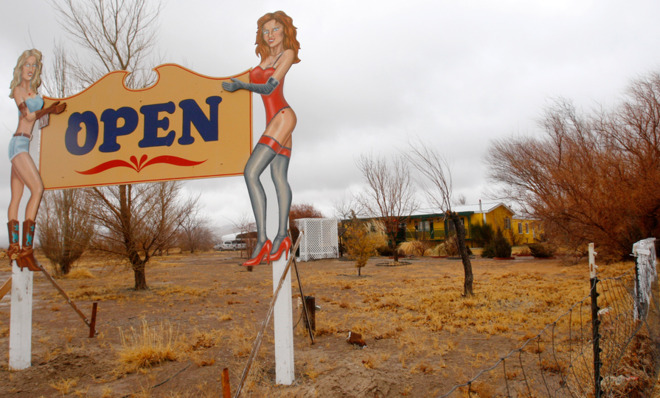Should drug deals and prostitution be included in GDP?
Britain thinks so

A free daily email with the biggest news stories of the day – and the best features from TheWeek.com
You are now subscribed
Your newsletter sign-up was successful
Britain will see a boost in measured economic activity later this year when activities previously never measured — specifically, drug dealing and prostitution — are incorporated into the measure.
Britain is making the change to fall into line with its European neighbors. In the Netherlands, for example, some drugs like marijuana are decriminalized and prostitution is legal and regulated. The European Union wants all countries to include the same activities in the measure, so that GDP numbers for different countries are fairer comparisons.
At first, BBC reports, the changes "will only include U.K. production of cannabis, drug smuggling, and prostitution, but it is expected that illegal employment, gambling, pirating of software, and fencing of stolen goods will also eventually be included."
The Week
Escape your echo chamber. Get the facts behind the news, plus analysis from multiple perspectives.

Sign up for The Week's Free Newsletters
From our morning news briefing to a weekly Good News Newsletter, get the best of The Week delivered directly to your inbox.
From our morning news briefing to a weekly Good News Newsletter, get the best of The Week delivered directly to your inbox.
On one hand, such changes seem sensible. After all, if you're trying to measure the size of the economy, you want to count everything people are doing in the economy, whether or not it's legal. And these are pretty big slices of activity. The early estimate in Britain is that prostitution and drug dealing alone are worth £10 billion ($16.7 billion) per year, as much as the total level of economic activities in smaller countries like Brunei ($16.3 billion) and Honduras ($17.3 billion).
The big downside? If something is illegal — in other words, if people have an incentive to hide it — then it's going to be very hard to accurately measure how much of it is taking place. People engaged in prostitution or drug dealing aren't going to be very open to survey takers trying to gauge how much activity is taking place. After all, what if the survey taker is a cop?
British statisticians are focusing on the supply side — prostitutes and drug dealers — as they think this will be more reliable. But prostitutes and clients, dealers and users would all be suspicious of — if not outright hostile toward — survey takers. That means that measuring these activities will always involve a good deal of inference and guesswork.
But it's still better to take a best guess than just dismiss whole classes of economic activity. Lots of people make a living selling drugs and sex. That's an unavoidable fact of life. Stopping them is a matter for law enforcement, not economists. The idea of just not including illegal activities in a measure of economic activity solely because they're illegal is silly, and I wouldn't be surprised to see a lot of other countries — including the U.S. — joining Britain in attempting to include them in measures of output.
A free daily email with the biggest news stories of the day – and the best features from TheWeek.com
Editor's note: This article has been revised since it was first published in order to more clearly include proper attribution to source material.
John Aziz is the economics and business correspondent at TheWeek.com. He is also an associate editor at Pieria.co.uk. Previously his work has appeared on Business Insider, Zero Hedge, and Noahpinion.
-
 Local elections 2026: where are they and who is expected to win?
Local elections 2026: where are they and who is expected to win?The Explainer Labour is braced for heavy losses and U-turn on postponing some council elections hasn’t helped the party’s prospects
-
 6 of the world’s most accessible destinations
6 of the world’s most accessible destinationsThe Week Recommends Experience all of Berlin, Singapore and Sydney
-
 How the FCC’s ‘equal time’ rule works
How the FCC’s ‘equal time’ rule worksIn the Spotlight The law is at the heart of the Colbert-CBS conflict